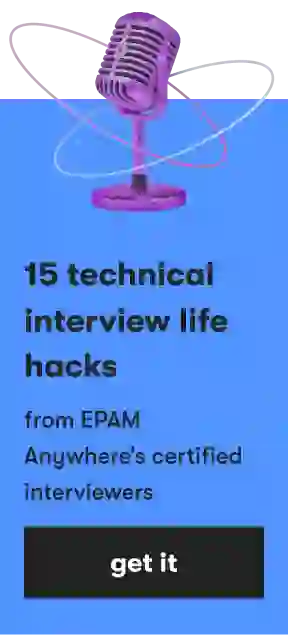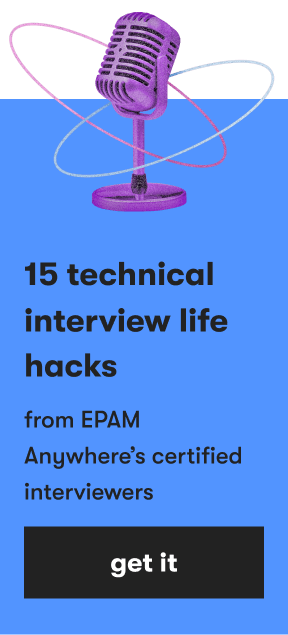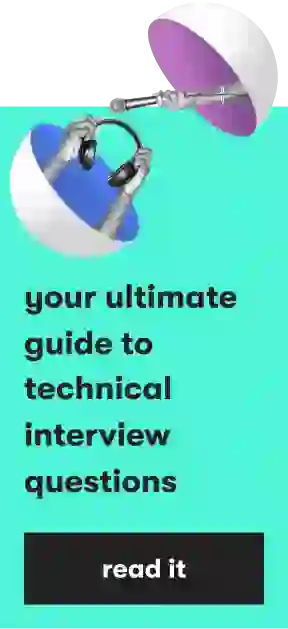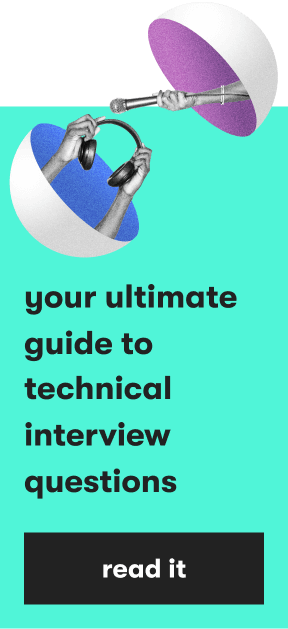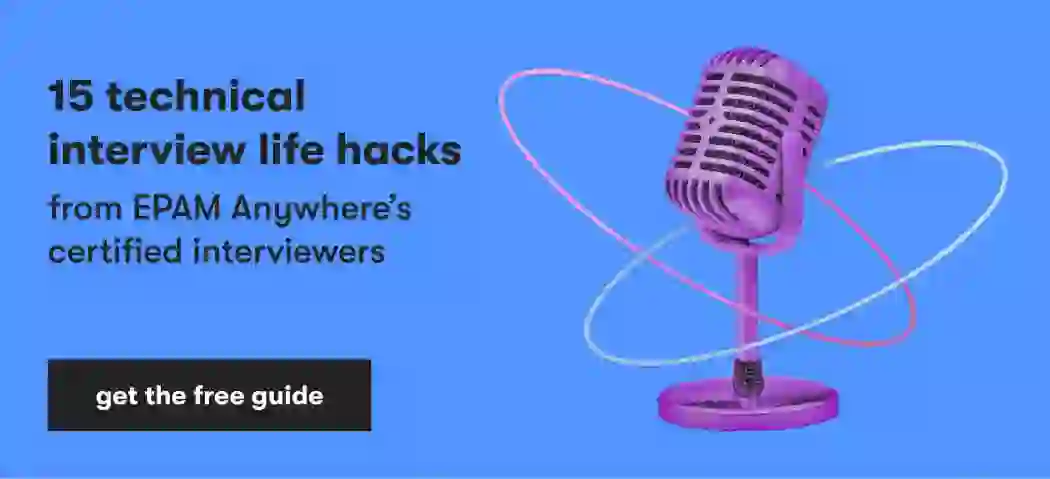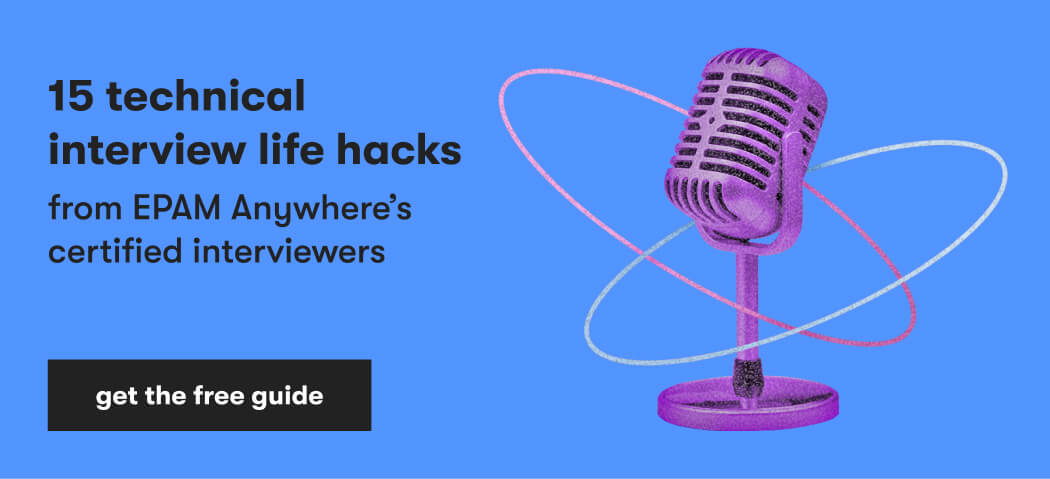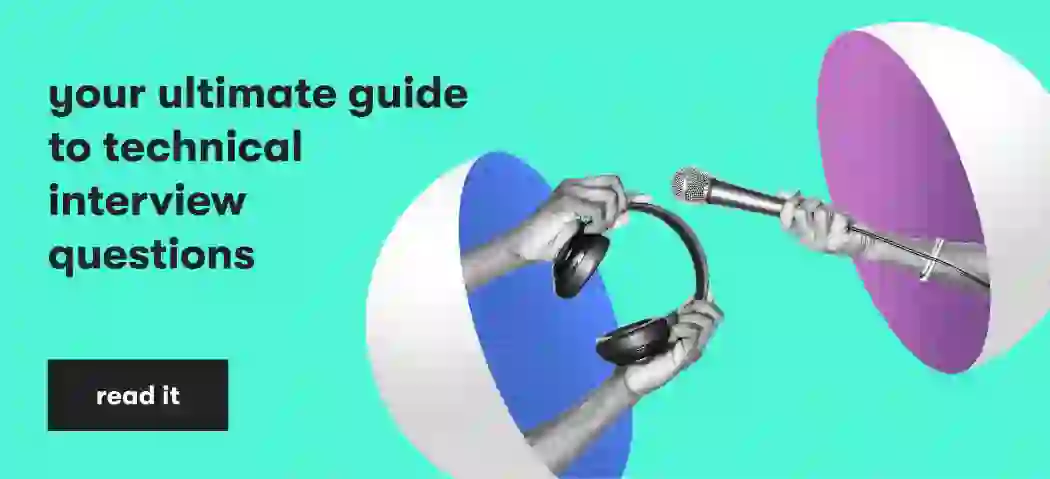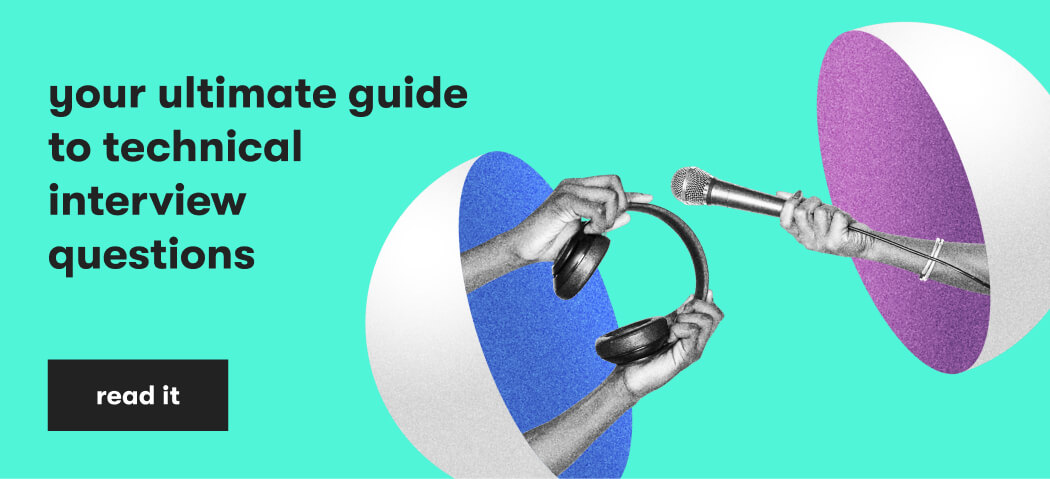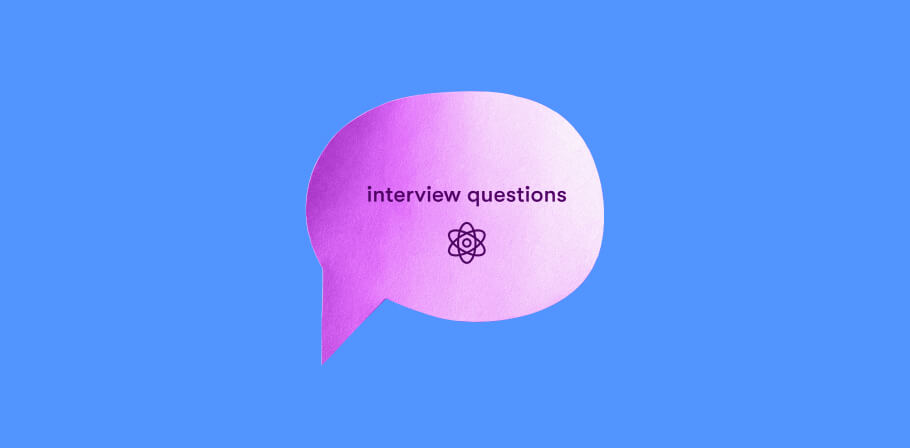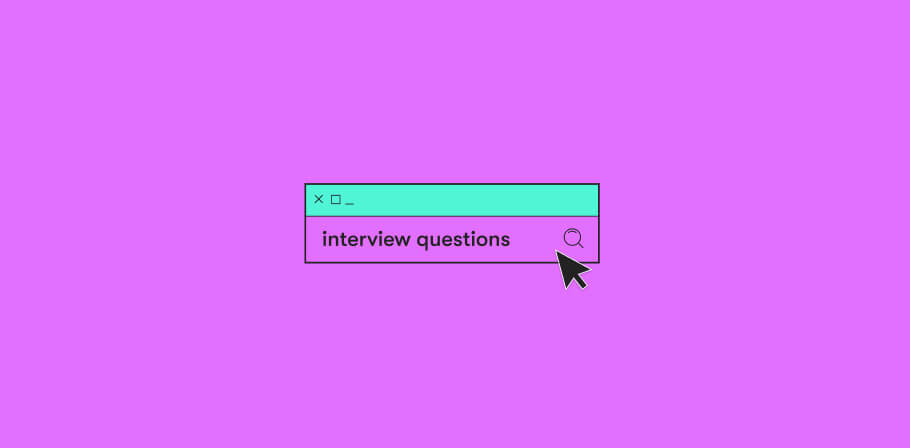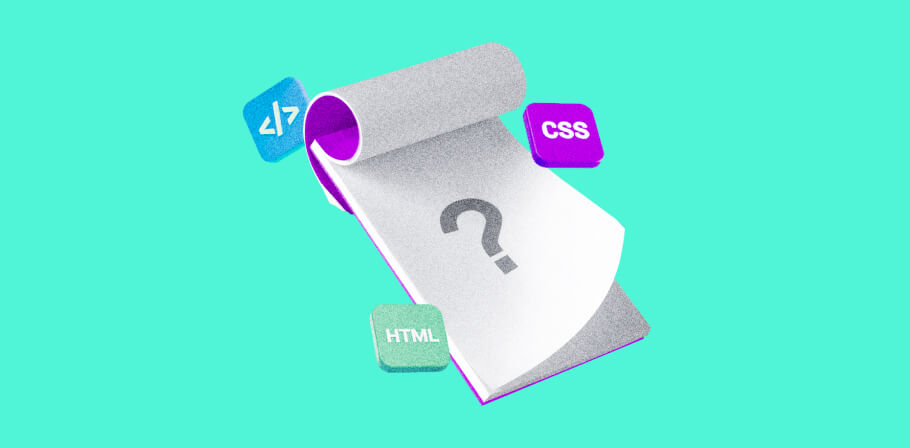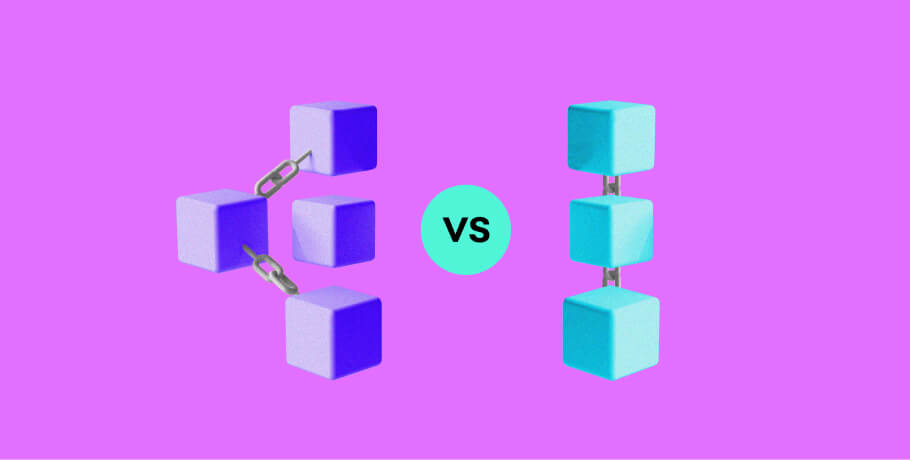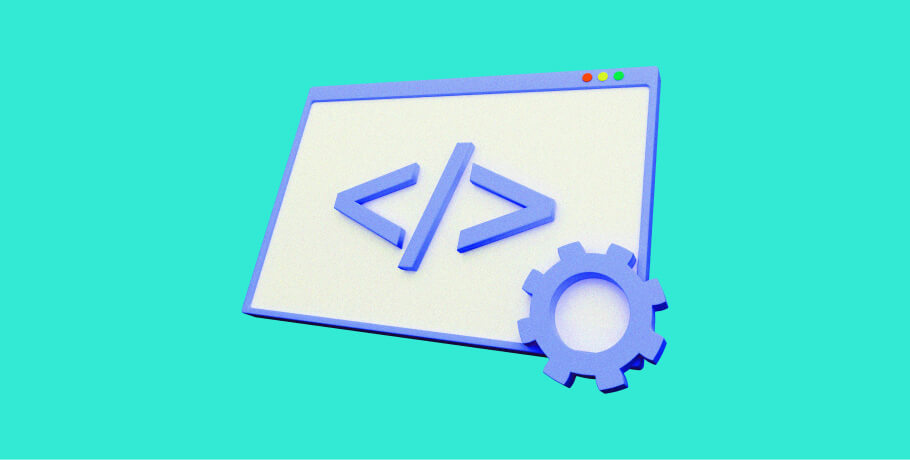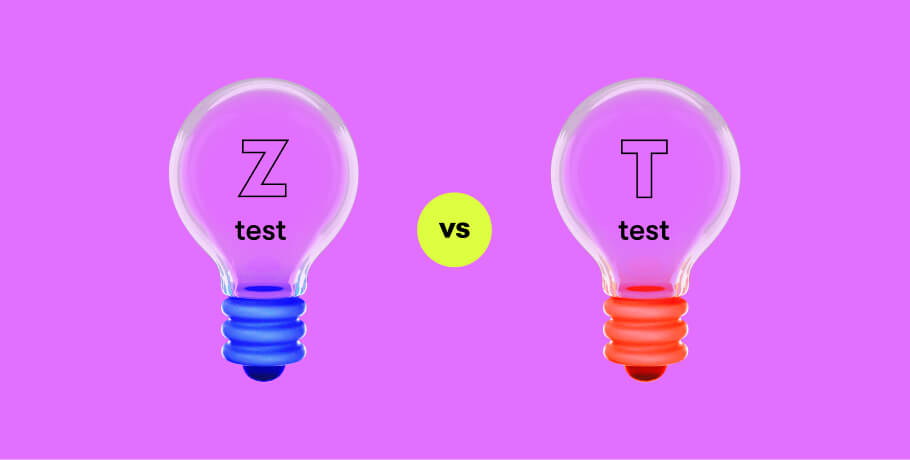At EPAM Anywhere, we want to give our candidates the best chance to land our full-time remote tech jobs. So we’ve compiled this full guide to our technical interview process for software engineering positions.
What does a technical interview at EPAM Anywhere look like?
At EPAM Anywhere, here’s what you can expect from our interview process:
- You will get questions about your technical background, capabilities, and professional experience.
- These questions will come from our technical interviewers who are recognized experts in your area of specialization.
- The interview will take from one to two hours depending on the skills to be verified.
“An interview is a dialogue between technical specialists whose primary goal is to discover talents who will join and succeed in the company. The answers you provide, questions you ask, and behavior you display impact hiring decisions.”

The technical interview is broken down into five stages:
- Introduction: saying hello, confirming name pronunciations, and checking if devices are working
- Background check: asking about relevant projects and technologies you’ve worked with
- Core technology knowledge check: gauging your experience with applicable frameworks and tools and testing your coding skills with a practical task
- Soft skills check: assessing your communication, critical thinking, and leadership skills
- Q&A and closure: wrapping up by exchanging questions and affirming the wait time for results
Stage one: introduction
During the introduction stage, everyone is just getting to know each other. This is a good time for friendly introductions.
During this time, it’s polite to confirm how you pronounce each others’ names. Then there will be a general equipment check. This ensures the interview goes through without interruptions. To prevent technical headaches, run a test at least 20 minutes before the interview begins.
The technical interviewer will also remind you that the conversation will be recorded. The recording allows interviewers to review answers for clarity and quality. You’ll need to approve the recording before the interview begins, but it is not a mandatory part of the process.
Stage two: background check
The background check looks into your relevant projects, technologies, and ambitions. This is the perfect time to describe your success on the projects you worked on.
You can start by going into detail about business domains you’re familiar with (e.g., healthcare, fintech, or e-commerce). You can also take the time to talk about the software or platforms you have experience with (SaaS, mobile apps, etc.).
Also, be ready to talk briefly about your experience in these areas:
- SDLC models
- Customer communication
- Team structures
- Team processes
- Your responsibilities
- Your desired future role (and how you plan to get there)
- Your success stories
“Tell me about yourself” is by far the scariest question for candidates, and preparing to answer it correctly is key to getting off to a good start in the interview. The interviewer is expecting to hear about your skills, qualities, experience, and certifications earned throughout your career, what type of person you are, and how you would help our company achieve our commercial goals. The key thing here is to keep it below five minutes and ensure that your answers are linked to the job description you are applying for.
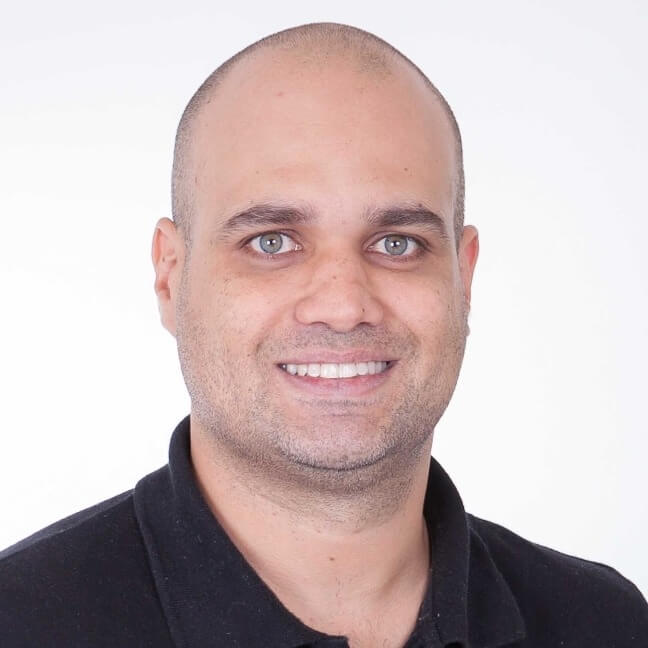
You will be asked many questions during this stage. Clear, well-thought-out answers play a huge role in interview success. A few types of questions the technical interviewer may ask include:
- Sharing your project story: suggesting you describe processes or approaches you followed while working on previous projects
- Problem-solution questions: suggesting you offer solutions for particular problems or share ideas on how you could mitigate them
- Revealing hands-on experience: encouraging you to share what you used this or that technology or framework for
Stage three: core technology knowledge check
Once you get through the background check, it’s time to check your core technology knowledge and complete a coding task. All technical questions are customized to review the depth of your knowledge and experience with technologies based on your professional profile.
When answering questions, use the S.T.A.R. technique. It stands for Situation, Task, Action, and Result. An interviewer suggests an imaginary situation that a candidate might have to deal with and gives a task. A candidate would have to explain an action in a specific case, highlight the result, and explain what led to it. What is interesting about this technique is that it can also be used for structuring responses. For example, you can use it to describe real situations in the past.

Those who are going through an engineering interview have mandatory coding tasks. Much like other tests, there is a clear problem you can solve with a coding solution based on your way of thinking. This task shouldn't take longer than 20 minutes.
The practical task during the interview will depend on your role.
If you're targeting a DevOps engineer role, an interviewer may ask you to write some function that, for example, takes some string as input, and write a script that would produce the outlined output.
If you're interviewed for a .NET engineer position, you may be asked to create the repository for a particular business object and a single method with specific requirements. Or, if you're doing a Java developer interview, you may be asked to implement a cache, for instance, in the DAO class of Person objects.
Stage four: soft skills check
It’s commonly believed that soft skills are unnecessary for software engineers. However, these skills are just as important as hands-on experience. Strong soft skills result in better teamwork, effective communication, and fast candidate growth.
Unlike the other stages, the soft skills check starts from the beginning. Here are some situations that will test your soft skills:
- Asking about projects that you prefer
- Being clear and direct when asking follow-up questions
- Asking how you would rework a task or change a project
- Asking if you have questions
- Asking questions about company mission, philosophy, or values
You don't need to pretend you are another person. Be yourself and be confident. Share your values, principles, and approach to doing work. You're going to join a new project and team if things go well. You don’t want to force yourself into any team you aren’t comfortable with.
Before the interview, prepare yourself by checking your soft skills. Some key soft skills that will be assessed during the interview include:
- Ability to learn: the interviewer will check whether you’ve been using the same technology stack or sticking with the same duties for the past five years. You might be asked why you did or did not pursue new knowledge.
- Communication: pay attention to how you speak. Be clear and confident in representing yourself while being ready to answer any clarifying questions.
- Critical thinking: they will ask if there were any processes that were improved by your suggestion. Provide extra details on any solutions that worked.
- Leadership: you can be asked if you’ve ever managed or coordinated people (or suggested improvements on how to manage people).
- Problem-solving: they may ask about situations where you resolved conflicts.
- Teamwork: focus on how your experiences in prior jobs will allow you to better integrate with this job.
- Stress resistance: you might be asked about how you deal with high-stress situations like multiple responsibilities, multitasking, fast-paced environments, or uncertainty.
The ideal candidate is humble (has a strong work ethic), hungry (can get the right things done even if takes more time and efforts), and people-smart (has a proven ability to work efficiently in a team and be flexible). We are looking for long-term potential, and hiring the best and the brightest is our top priority.

Stage five: Q&A and closure
The Q&A stage is a free-form back-and-forth interview between you and the interviewer. During this stage, you’ll need to be ready to answer and ask important questions.
You may have questions about the following:
- Culture
- Management style
- Performance criteria
- Mission
- Values
- Company philosophy
Once the Q&A is finished, the interviewer will explain the next steps. The decision will ultimately be made by the hiring manager, which takes between one to five days.
Now that you know more about our technical interview process, look at our open jobs at EPAM Anywhere if you haven’t applied already, and good luck with your interview!
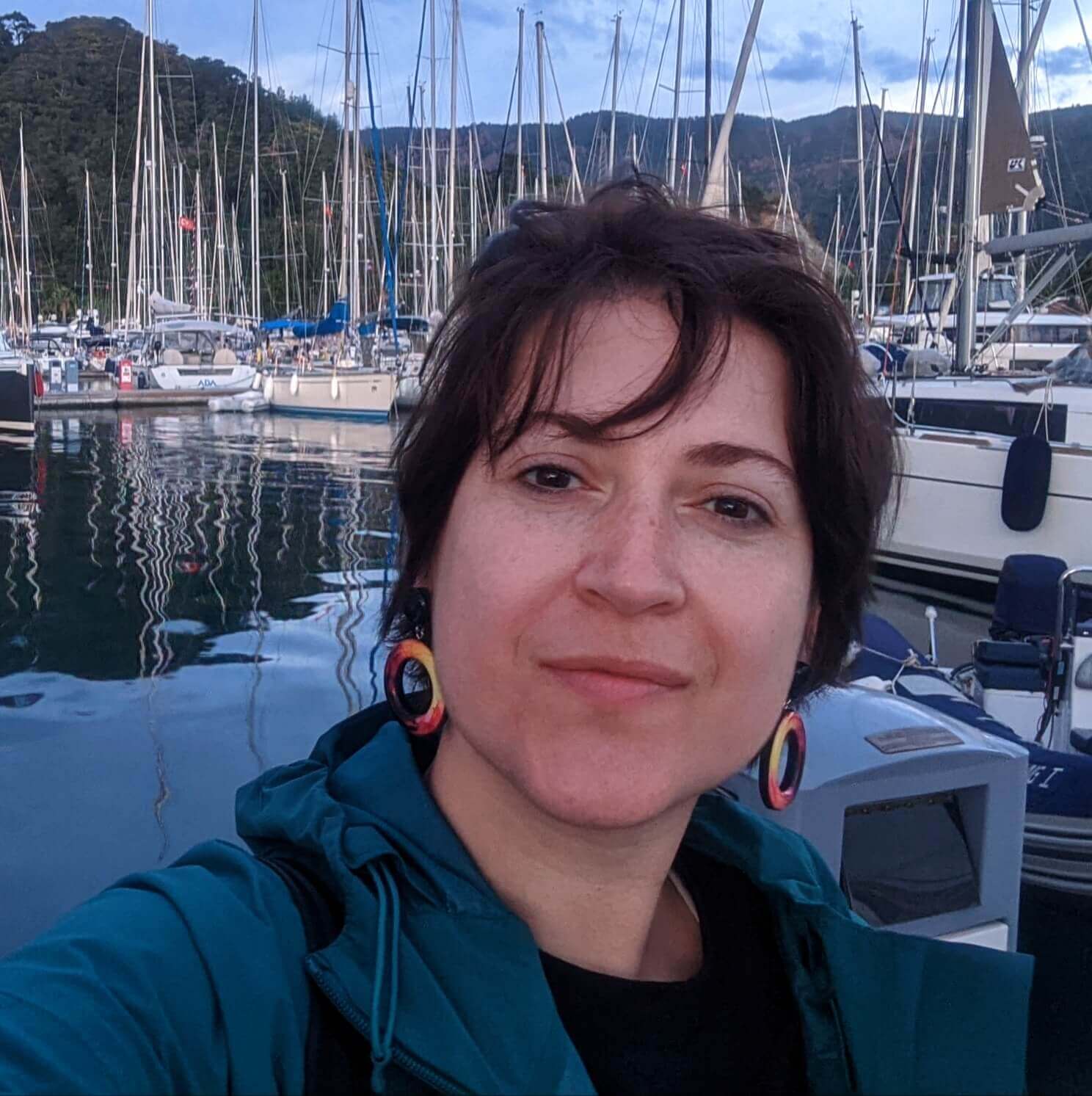
As Chief Editor, Darya works with our top technical and career experts at EPAM Anywhere to share their insights with our global audience. With 12+ years in digital communications, she’s happy to help job seekers make the best of remote work opportunities and build a fulfilling career in tech.
As Chief Editor, Darya works with our top technical and career experts at EPAM Anywhere to share their insights with our global audience. With 12+ years in digital communications, she’s happy to help job seekers make the best of remote work opportunities and build a fulfilling career in tech.
Explore our Editorial Policy to learn more about our standards for content creation.
read more

